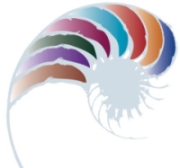You can contact LEARNZ, part of CORE Education, at:
Postal Address:
PO Box 13 678,
Christchurch 8141,
New Zealand

All LEARNZ field trips targeting primary and secondary schools are closely linked to the New Zealand curriculum, in particular science, social studies and geography. They can also be used by other subject teachers.
Adaptations, Antarctica, biodiversity, carbon cycle, climate change, ecology, environment, food webs, human impacts, ice, life cycle, marine communities, marine research, monitoring change, ocean acidification, oceans, Offshore, scientific research, sustainability.
LEARNZ virtual field trips contribute to the development of all five key competencies:
| Key Competencies | Examples of Related Field Trip Components |
| Thinking | Constructing questions to put to experts during Audioconferences and via Ask-an-Expert. |
| Using language, symbols and texts | Interpreting and making meaning of a variety of language and symbols in the Background Pages and throughout the web site. |
| Managing self | Numerous content-related Activities provide students with chances to engage with the material and create their own interpretation of the content. |
| Relating to others | Videos connect students with a range of expert opinions. Students listen actively when seeking answers to video questions. |
| Participating and contributing | LEARNZ Virtual Field Trips are an ideal medium for group-based topic inquiry. They also enable students to transfer new learning into the context of their own communities where they are encouraged to take action. |
(See page 12-13 NZC 2007)
The Antarctica field trip encourages, models and explores these values:
(see page 10 NZC 2007).
The Antarctica field trip directly involves learning that is supported by information and communication technology (ICT).
In particular, the trip will:
| Strand | Achievement Aims | Background Pages | Related Activities |
|
Social Studies
|
Place and Environment
|
Activities |
| Strand | Achievement Aims | Background Pages | Related Activities |
|
The Nature of Science
|
Participating and contributing
Understanding about science
Communicating in science
|
Activities | |
|
Planet Earth and Beyond
|
Earth systems
Interacting systems
|
Activities | |
|
Material World
|
Properties and changes of matter
|
Activities | |
|
Living World
|
Ecology
|
Activities |
| Science Capability | Description |
|
|
Learners make careful observations and differentiate between observation and inference. Science knowledge is based on data derived from direct, or indirect, observations of the natural physical world and often includes measuring something. An inference is a conclusion you draw from observations – the meaning you make from observations. Understanding the difference is an important step towards being scientifically literate. |
|
|
Learners support their ideas with evidence and look for evidence supporting others' explanations. Science is a way of explaining the world. Science is empirical and measurable. This means that in science, explanations need to be supported by evidence that is based on, or derived from, observations of the natural world. |
|
|
Not all questions can be answered by science. In order to evaluate the trustworthiness of data, students need to know quite a lot about the qualities of scientific tests. |
|
|
Scientists represent their ideas in a variety of ways, including models, graphs, charts, diagrams and written texts. Learners think about how data is presented and ask questions such as:
|
|
|
This capability requires students to use the other capabilities to engage with science in “real life” contexts. It involves students taking an interest in science issues, participating in discussions about science and at times taking action. |
| Strand | Achievement Aims | Background Pages | Related Activities |
|
Technological Knowledge
|
Technological Products
|
Activities | |
|
Nature of Technology
|
Nature of Technology
|
Activities |
The selected processes and strategies indicators used in the table below are from Level three of the NZC, but aim to cover indicators from levels two to four.
| Strand | Processes and Strategies Indicators | Example of Related Field Trip Component |
|
Speaking, Writing and Presenting
|
|
|
|
Listening, Reading and Viewing
|
|
|
Science 1.14: Demonstrate understanding of carbon cycling
Students are assessed on the addition, removal and storage of carbon in short and long term biological, chemical and geological cycles.
ESS 3.5: Demonstrate understanding of the impact of human activity on the Earth System. External, 4 credits.Human activity could negative or positive such as fossil fuel combustion and sustainable practices. Impacts may be consequences such as climate change, ocean acidification and the extinction of species.